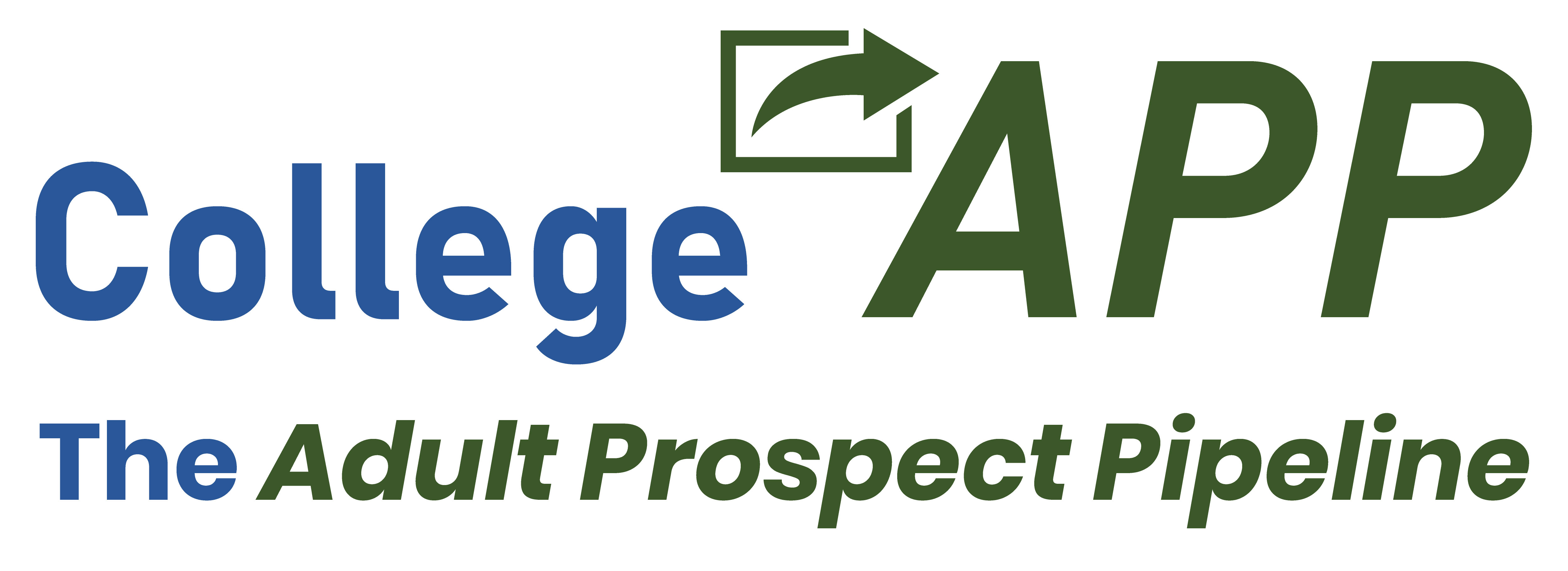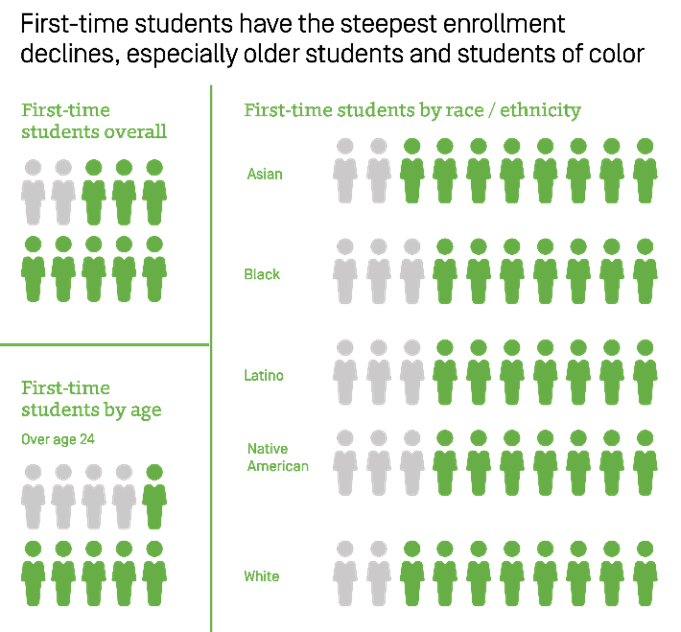
By Jack MacKenzie
If necessity is the mother of invention, let it also be the father of innovation in the relationship between community colleges and the adult population. It is necessary for our communities to provide an educated and trained workforce for the jobs that will fuel America’s economic recovery. Many of those jobs are no longer the ones that sustained millions of people before COVID-19. They are new jobs, some in new industries, requiring new and different skills. Innovative approaches to meeting the higher education needs of adults are key to moving the U.S. beyond the pandemic and into the future, and CollegeApp is here to help.
Community colleges have historically provided the training and education needed for upskilling and reskilling people for their next job. Meanwhile, depending on how the data is interpreted, college enrollment declines range from 10 percent to more than 25 percent among some traditionally underserved populations. A recent Strada report, Powering Purpose: Invest Now in Community Colleges to Fuel Economic Recovery, details how the least served have been the hardest hit.
The report also reveals opportunity. CollegeAPP data, used by Strada, show a pent-up demand for education and training among American adults. In fact, extrapolated to the entire U.S. population, more than 35 million adults have a meaningful level of intent to pursue postsecondary education or training in the next two years. Over half of those adults are Black, Hispanic, or Asian, and 26 million of them do not have a college degree. Those are exactly the populations that have the highest enrollment declines. So, what gives?

There must be intentional actions around inclusion to ensure diversity and equity. Community colleges will benefit from an approach that signals to those 35 million adults that they belong and can overcome systemic barriers to get the education and training they want—that they demand. Community colleges, which have long championed the nontraditional student, have an opportunity, and now the ability, to embrace those adult student prospects at the individual level. Intentional inclusion should be an institutional commitment to embrace person-level, 1:1 adult prospect identification.
There are no shortcuts to intentional inclusion; in fact, it will be hard work. Intentional inclusion needs to emanate from all aspects of the college ecosystem:
- Curriculum matched to local employment needs
- Flexible scheduling that allows for varied and individual needs
- Financial forgiveness and access
- Application and enrollment interventions that break down the barriers that so many adults see when they attempt to enter a system that seems built for other people
All these steps need to be undertaken at the individual level. To make it more challenging, there are no gathering places for adults who are underemployed or unemployed. There are no meetings of adults who sit at their kitchen tables figuring out how to gain the skills necessary to land the jobs for which they are not prepared. CollegeAPP stands ready with the data necessary to make intentional inclusion both meaningful and affordable. Adults with education demand currently live in anonymity, but the colleges willing to find them, nurture them, and convert them into the education- and training-seeking people they truly are will reap the benefits.
Jack MacKenzie is CEO, CollegeAPP.
CollegeAPP was an Innovations 2021 sponsor and exhibitor.










